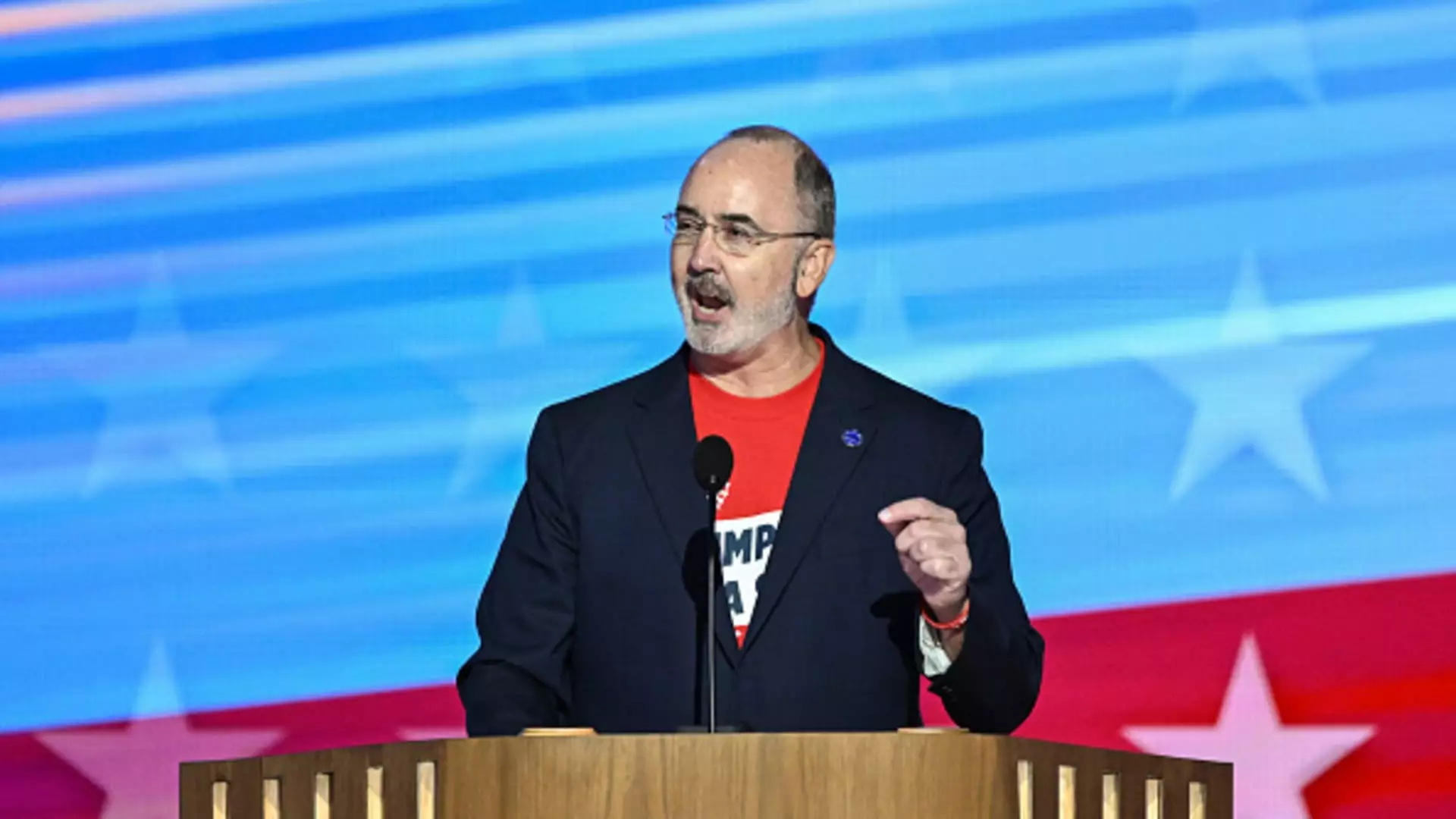The United Auto Workers (UAW) has long stood as a vanguard of labor rights, typically opposed to administration policies perceived as unfavorable to the working class. Yet the union, particularly under Shawn Fain’s presidency, has made a startling pivot. Fain, once vocal in his opposition to former President Donald Trump, has now emerged as an unexpected champion for Trump’s controversial tariffs on automobiles and parts. This alliance may seem counterintuitive at first glance, but it reveals deeper currents within America’s labor landscape.
Fain, who described the tariffs as “an attempt to stop the bleeding from the hemorrhaging of jobs in America for the last 33 years,” seems to view these financial barriers as a necessary evil to protect American jobs against the onslaught of cheaper imported vehicles. His willingness to embrace tariff policies prioritizes immediate job security over long-standing partisan divides, demonstrating an evolving understanding of economic nationalism’s potential in safeguarding American labor.
The Tariff Debate: Economic Protectionism or Short-term Fix?
Critics of the tariffs argue that the 25% levies will ultimately disrupt a fragile economic recovery, making cars more expensive and straining the very consumers that Fain and others purport to protect. Indeed, Ford CEO Jim Farley has voiced concerns about the chaos and additional costs that may ripple through the industry due to these tariffs. Yet, therein lies the catch: while tariffs can lead to short-term increases in prices for consumers, the premise is that they will also reinvigorate American manufacturing by compelling automakers to keep production domestically.
Fain’s perspective, albeit controversial, is rooted in the historical context of trade agreements like NAFTA, which many labor unions, including the UAW, have labeled a “free trade disaster.” His advocacy reflects a sentiment among a significant segment of the workforce that feels the grave ramifications of outsourcing and industry decline. By bringing jobs back into their communities, Fain contends, the tariffs could help revive local economies previously decimated by globalization.
Parsing the Politics of Tariffs
What is particularly noteworthy about Fain’s support for Trump’s tariffs is how it dances through the minefield of political allegiances. Fain has criticized the administration in public forums, yet here he negotiates a pragmatic stance in the background. He highlights a crucial realization: effectiveness in labor advocacy may require a pragmatic crossing of partisan lines, even if it means working with a leader like Trump, whom he previously disparaged as a “scab.”
This reality illustrates a pragmatic strain within labor movements, especially as unions continue to grapple with the challenges posed by rapidly evolving global markets and technological transformations. Fain’s remarks about needing to “get to work to fix the problems” reflect an urgency aligned with many in the labor community who are less concerned with adhering to political doctrine and more focused on securing the livelihoods of their members.
The Union’s Role Amidst Economic Disruption
As the UAW navigates this mixed terrain of politics and economics, they are concurrently grappling with their own internal issues. Continuing federal scrutiny following an investigation involving bribery and embezzlement casts a long shadow over the union’s credibility. Federal monitors have raised concerns about the transparency and integrity of the leadership. Fain’s controversial decisions will inevitably face intense scrutiny, especially as he aims to redefine the union’s mission in an increasingly complex economic landscape.
This precarious balancing act highlights an essential truth: that unions must remain vigilant not just against external adversaries but also internal challenges. As they bolster alliances with business and political leaders, union heads like Fain must also ensure that these partnerships do not sidestep the fundamental rights and expectations of their members.
Whether deemed a strategic genius or a desperate gamble, Fain’s negotiations with the Trump administration signal an essential crossroads for American labor. The labor movement stands at a pivotal juncture, compelled to adapt to unprecedented economic realities, fortify its position amidst political uncertainties, and define its purpose in a mercurial market landscape. While Fain’s newfound support for tariffs could bolster American manufacturing and job security, it could also be a slippery slope toward compromising core labor principles. The decision remains whether the end truly justifies the means in a time when the stakes have never been higher for both workers and corporations alike.

